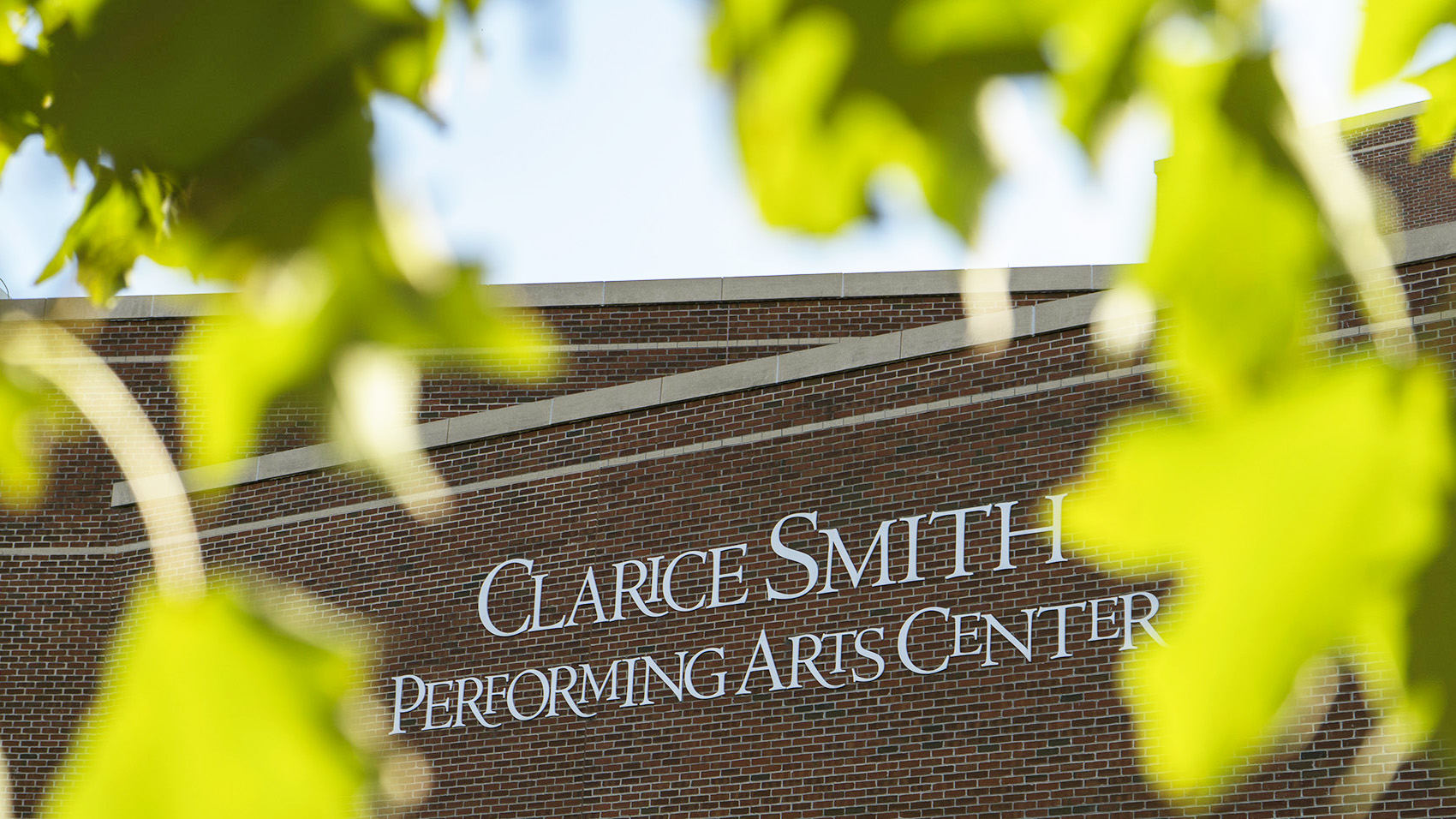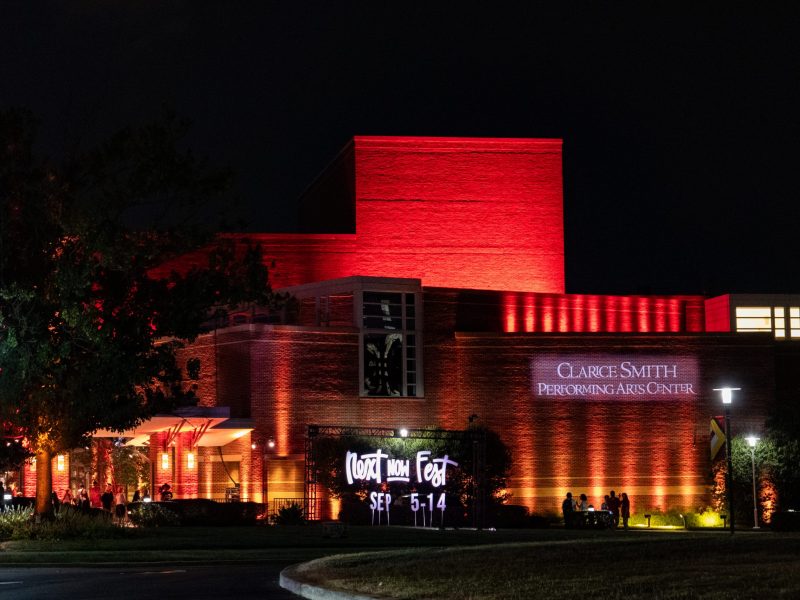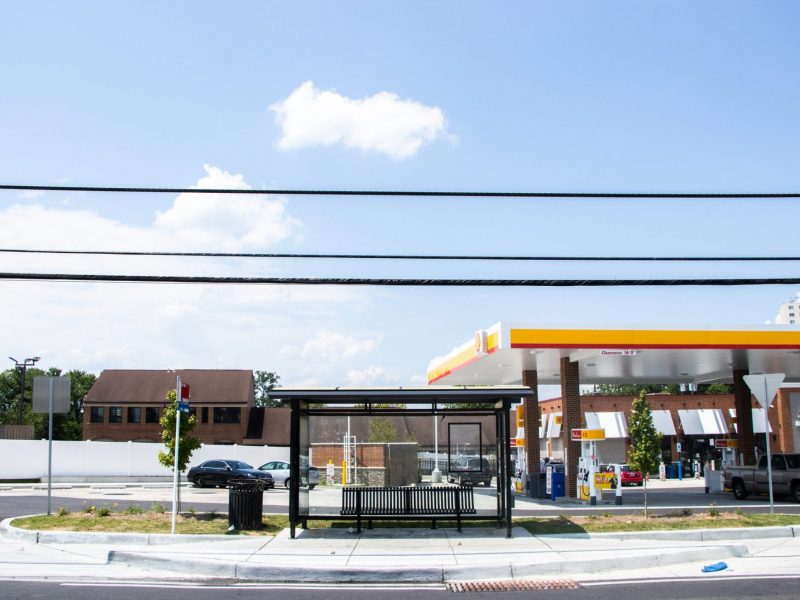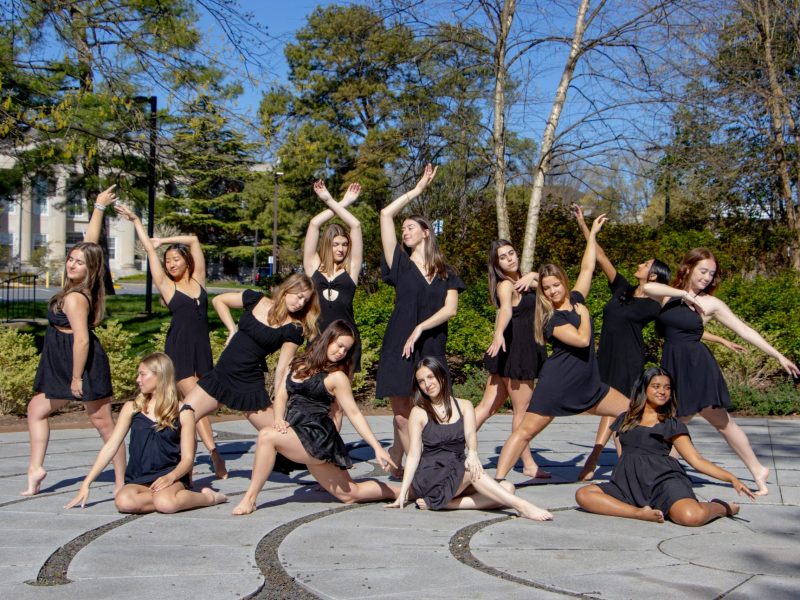A collection of sounds swept the halls of the Gildenhorn Recital Hall in The Clarice Smith Performing Arts Center on Oct. 26 during a new concert, “Latin American Collage: Uncommon Perspectives.”
Alfonso Hernández, a solo piano DMA candidate, spearheaded the show successfully and presented a world full of colors with the help of ethnomusicology doctoral students Mariángel Villalobos and Víctor Hernández-Sang.
“I think what’s important is to create a community, unifying the people who are doing research on Latin American music, trying to unify them and do something together,” Hernández said. “But maybe if there’s a way we can engage as a group on a project I think that will be beneficial for the School of Music.”
At the start of the program, Hernández’s joy bubbled even behind his mask. The excitement was palpable and found its way into the eyes of many audience members eager to learn about Latin American cultures through music.
Singer-songwriter Lilo Gonzalez opened the concert with an energy that illuminated the hall and his incredible musical interpretations kept his audience captivated.
Gonzalez gifted the audience new horizons of music with his “Music and the Salvadoran Diaspora in the Washington, D.C. Area,” all without leaving College Park.
His voice made its way through the hall and pleasantly into audiences’ ears with colorful excitement. The music had been waiting to be heard for quite some time now.
[RecWell’s HIIT30 class will make you feel the burn]
Gonzalez was not a professionally trained musician — he learned all of his skills from the street. His own story of resilience in immigrating to the U.S. and adapting to a new world inspired him. Villalobos, studying music from El Salvador, invited Gonzalez to perform that evening.
“When you think of Washington, D.C., and Maryland, you think of like the monuments and all of that, but there’s this whole world. I think it’s very important, and like Maryland and Washington, D.C., will not be the same without the immigrants,” Villalobos said. “I think it’s important to hear different perspectives.”
These uncommon perspectives did not disappoint, as Gonzalez’s tenor voice cut through the air gently from his stomach and into our ears.
Fingers confidently strummed as his voice carried and we learned about the stories of Los Angeles for immigrants facing the realities of racism.
Following Gonzalez, Hernández performed Joaquín Marroquín’s “Suite Chopiniana.”
[Some UMD students say the pandemic has impacted their social life]
Hernández was a magnificent performer. He briefly told the audience about what he would play and kindly told us to expect to hear elements of Stravinsky.
Except, this was Marroquín and not Stravinsky. Hernández made this clear as he played with fingers that found themselves enamored with the keys beneath them.
As he finished the composition, his arms soared up from his chest and the reverb followed.
Following this heartfelt performance, Hernández-Sang presented his research on Gagá: Haitian-Dominican Music and Dance.
He shared videos of his own fieldwork and we learned about music in the context of Haitian-Dominican culture.
“Haitian-Dominican Gagá is a tradition that is practiced by Dominicans of Haitian descent in the Dominican Republic. It is a procession of music and dance,” Hernández-Sang explained.
The Ignis Graduate Fellowship Woodwind Quintet followed Hernández-Sang’s presentation.
Their melodic ideas danced so fluidly among waves of sound and created a warm atmosphere of Afro-Cuban rhythms.
Ignis played American composer Valerie Coleman’s Afro-Cuban Concerto and I was impressed with the energy that bounced on stage in the effortless fingers of the five student musicians.
The dynamic contrast and musicality were intense and kept audience members engaged. Sounds flourished as the quintet danced through mixed meters that made it unique to Afro-Cuban rhythms.
Ignis concluded the concert and Gildenhorn was filled with applause of pleased ears.
The Latin American Collage was entirely student-led, and it hopes to continue projects like it for many years to come.
“The channels at the School of Music exist for these kinds of projects,” Hernández said.
This showcase of Latin American heritage demonstrated the potential of future performances at The Clarice to represent and celebrate different communities.



